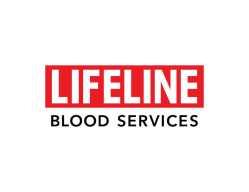
Raising Awareness: Minority Blood Donations Crucial for Sickle Cell Patients
Friday, April 26, 2024

Amidst the myriad health disparities faced by minority communities, one often overlooked but immensely impactful aspect is blood donation. Particularly, the significance of minority blood donations cannot be overstated, especially for patients battling sickle cell disease (SCD).
Sickle cell disease, a genetic disorder predominantly affecting African American, Hispanic, and other minority communities, poses significant challenges to those afflicted. The hallmark of SCD is the presence of abnormal hemoglobin, causing red blood cells to assume a sickle shape, leading to pain, anemia, organ damage, and a myriad of complications. Blood transfusions stand as a vital component of treatment, providing relief and improving the quality of life for SCD patients.

However, finding compatible blood matches remains a persistent challenge, especially for minority patients. With a significantly smaller pool of minority donors compared to the demand, accessing suitable blood becomes an arduous task. This underscores the urgent need for increased awareness and participation in minority blood donation drives.
The race of blood donors doesn’t usually matter, as long as the blood types are compatible. However, African Americans have unique protein structures that can make it hard to find compatible units of blood in other donor populations.
Efforts to raise awareness about the importance of minority blood donations are not only about addressing disparities but also about saving lives. Every donation, regardless of ethnicity, carries the potential to alleviate suffering and provide hope for individuals grappling with SCD and other blood-related disorders. “About 5% of our current donor population are African Americans, and we are motivated to raise that percentage, so we can better serve the communities of West TN,“ shares Melinda Reid, LIFELINE Blood Services Marketing Manager.

Moreover, fostering a culture of inclusivity in blood donation encourages solidarity and empathy within communities. It sends a powerful message of support to those battling illness, affirming that they are not alone in their journey toward recovery. Donor Wendy Isom Mercer shares, “When I donate blood, I know I am making a local impact. With every donation, I am helping save up to 3 lives and I may be helping someone suffering from Sickle Cell Disease.”
Let’s be reminded about the profound impact that each blood donation, especially from minority individuals, can have on the lives of SCD patients. By coming together and stepping up to donate, we reaffirm our commitment to health equity and collective well-being. Together, we can make a tangible difference in the lives of those in need, one drop at a time.

LIFELINE provides blood services to 21 West Tennessee counties, including 17 hospitals, 21 emergency helicopter service locations, and 1 ground ambulance service. Annually, the Center collects approximately 26,000 blood products (red cell units, platelets, plasma, etc.) to meet the needs of patients. Of that total, 75% of those products are usually collected on bloodmobiles across West Tennessee. LIFELINE also provides reference lab and cross-matching services to healthcare facilities. For more information, visit lifelinebloodserv.org.
